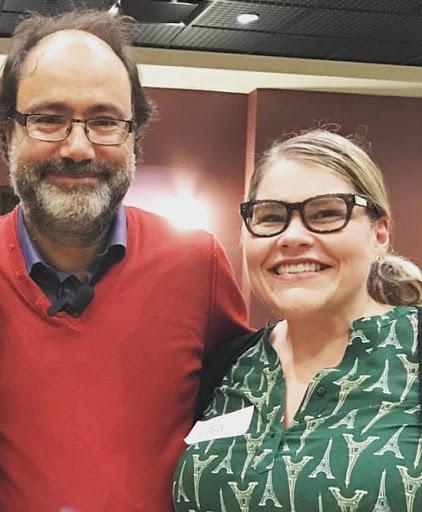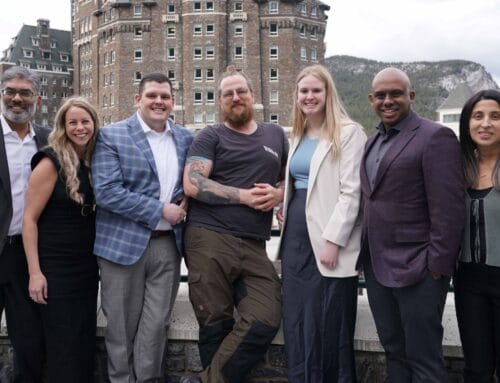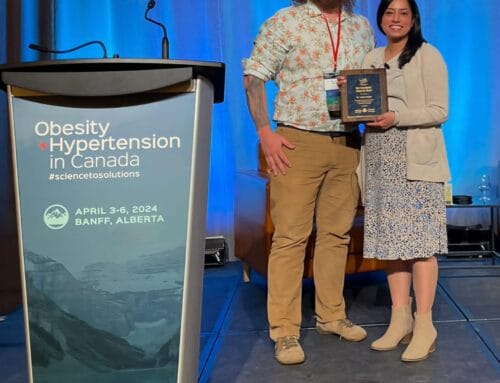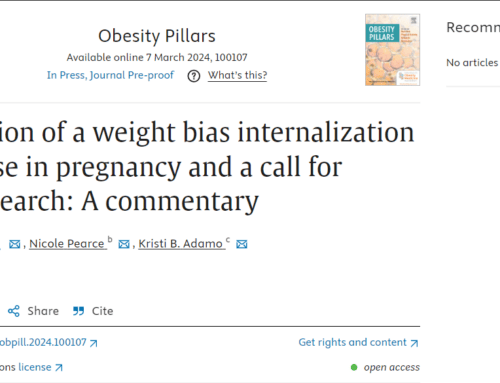by Lisa Schaffer
“We cannot be what we do not see.”
I cannot recall exactly where or when this phrase came to me but it has become core to who I am and how I approach life.
Living with obesity is complicated. The disease itself is complex. Even more complicated and problematic is the misunderstanding and misinformation perpetuated about those of us living with the disease. For decades, I bought into the narrative that I was the root of the problem – me and my lack of willpower. That I was not worthy of a full and happy life – at least not until I did something about my weight. There was no part of my life that obesity did not touch. The result was a life that became narrowly focused with all decisions revolving around my weight and where I was in my attempt to manage it.
I am confident that I am not alone in this and that there are many of us out there – smart, strong, well informed people wishing deeply and working hard to feel worthy despite the bombardment of messaging that health and happiness only comes in a small package.
A major plot twist came for me on a fairly benign day at the gym. I was a steadfast gym go-er and had a standard go-to combo of weights and cardio, but had decided that I needed to switch things up and push myself harder and so mustered up the courage to attempt a spin class. I remember steeling my nerves and walking into the studio – earphones in to block out the world, towel and water in hand, scanning the room for a bike in the back where I would not be front and center nor be able to see myself in the mirror. I wanted to be there, but was not interested in being seen. I eyed the other women in the class and how they set up their bikes – again not wanting to stand out by asking for help. Clearly, I already did not belong, so why compound this by drawing attention to myself? Confident in my camouflaged set-up (and with an emergency exit plan mentally mapped out) I settled in for the class. Out of the corner of my eye I saw a woman who looked like me walk into class – I took so much comfort in the fact that another larger-bodied woman was going to experience this with me. I felt like it was ok for me to be there on that terrifying little seat. Then to my complete surprise she went to the bike up on the teacher’s platform, set up a mic pack, popped in some music and led the class. A woman who looked like me was teaching a kick-ass class, and that moment changed me forever. That day at the gym happened over 15 years ago, and that spin teacher is someone I am proud to call my friend (hi Tina, I love you!) and someone that I thank often. Her ability to show up and be seen has allowed me to do the same.
It can be so much easier to keep your life narrowly focused on size and weight instead of the real measures of success – health and happiness. More often than not, the world around us doesn’t make things easier either – but there are a few glimmers of hope out there.
Earlier this year, Nike made the move to use plus-size mannequins to display their plus-size workout gear – something that should not have been seen as a radical move. Sadly, the initial response was negative with one writer going as far to say “Obese mannequins are selling women a dangerous lie” and describing the mannequin as “immense, gargantuan, vast. She heaves with fat. She is, in every measure, obese, and she is not readying herself for a run in her shiny Nike gear. She cannot run. She is, more likely, pre-diabetic and on her way to a hip replacement.”
The hypocrisy of telling people living with obesity that they need to move more and to then berate a company working to support that healthy behaviour boggles the mind. However, the backlash to the backlash was even louder, and what followed was a lively defense of plus-size mannequins on social media, from correcting false assumptions and information to a plethora of personal testimonies with people from all over the world sharing their stories and photos, showing the world what larger bodies are truly capable of.
Nike’s simple act of literally representing a section of their client base was a global wake up call that representation matters. Showing diverse body shapes is not a subversive act – nor is it altruistic. It should be a non-conversation. But until we get to that place I will continue to represent however and wherever I can. Because we cannot be what we do not see.
Lisa Schaffer is chair of Obesity Canada’s Public Engagement Committee






